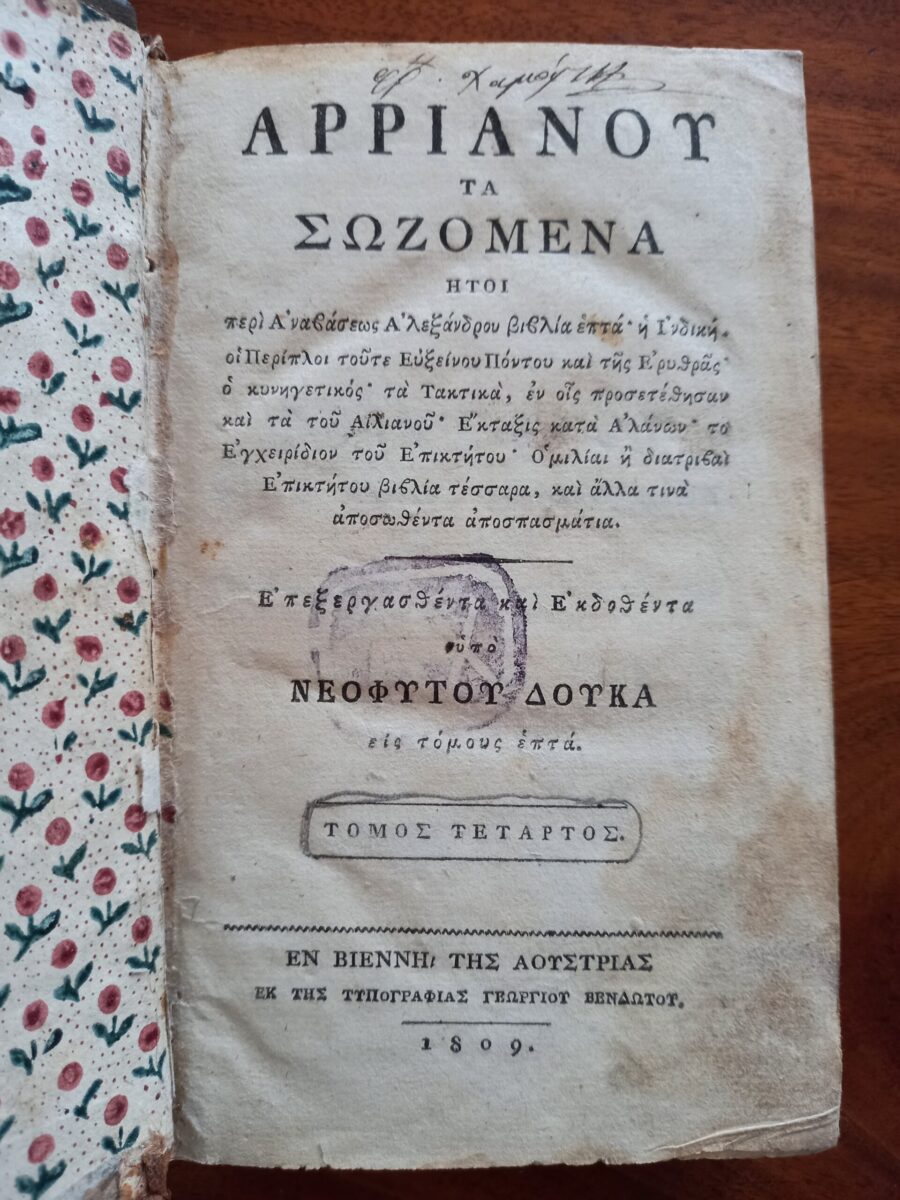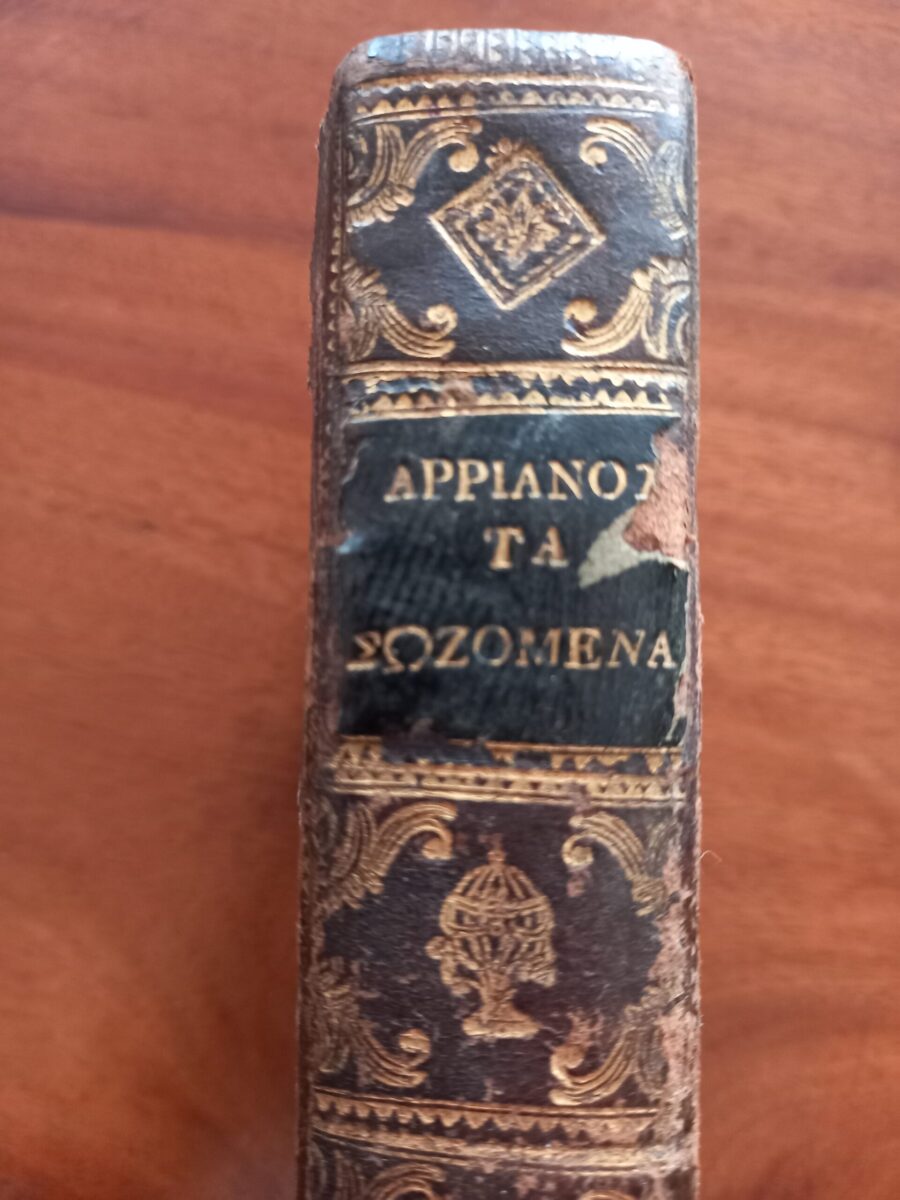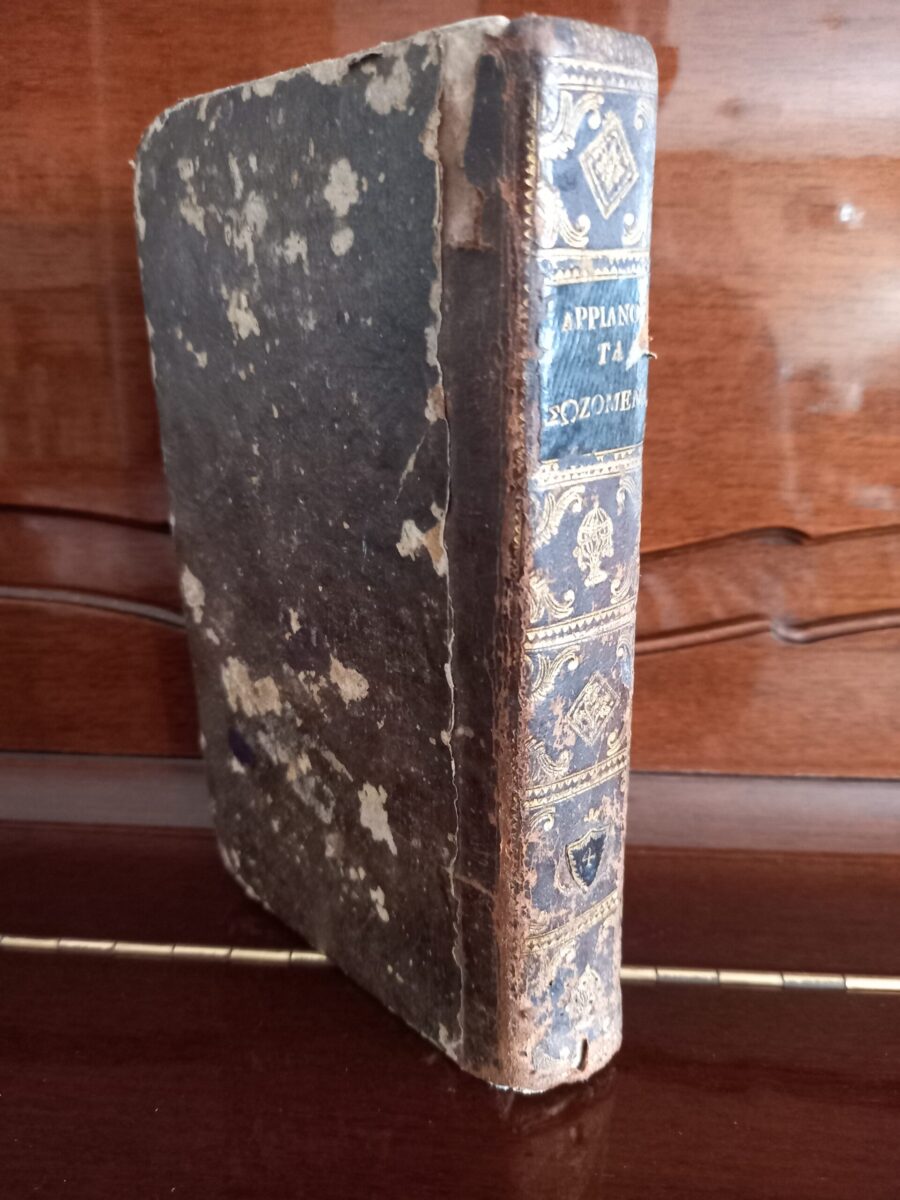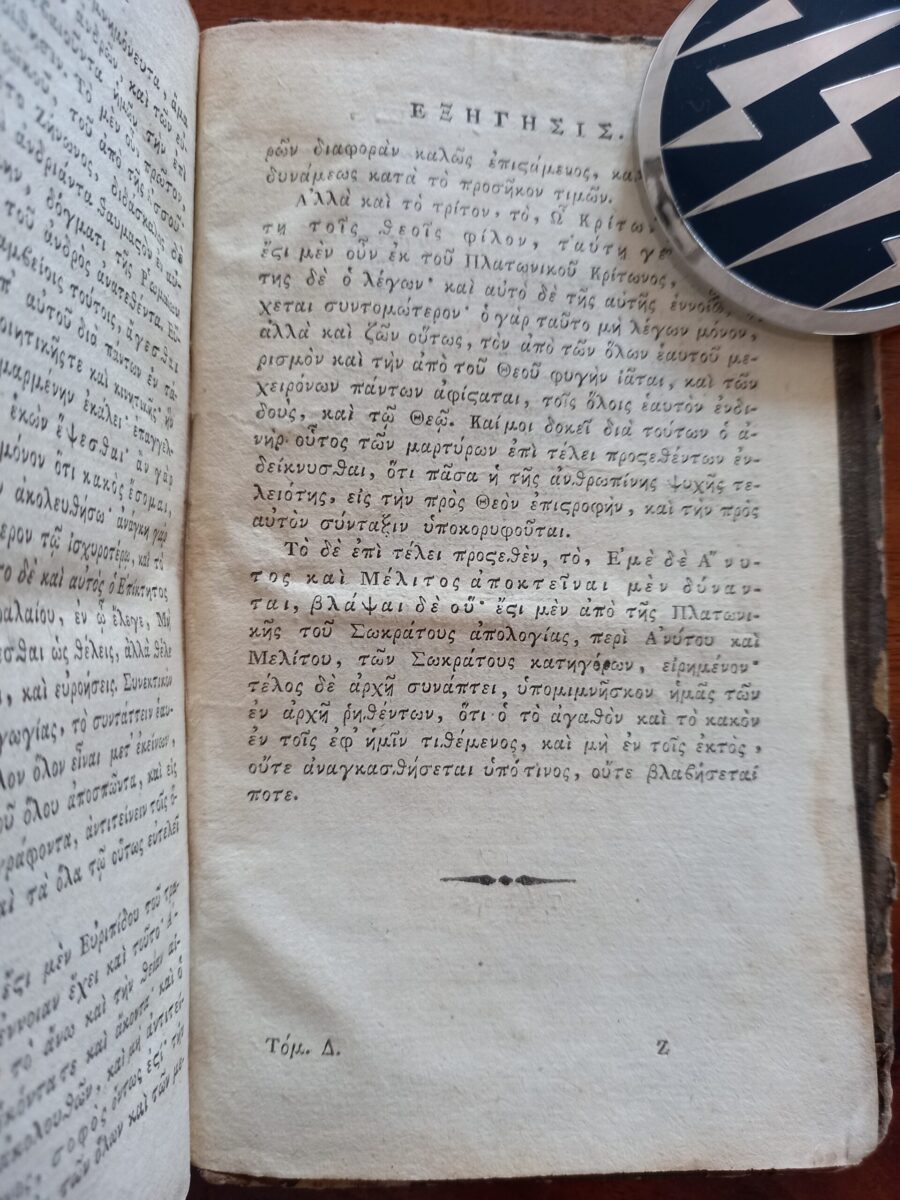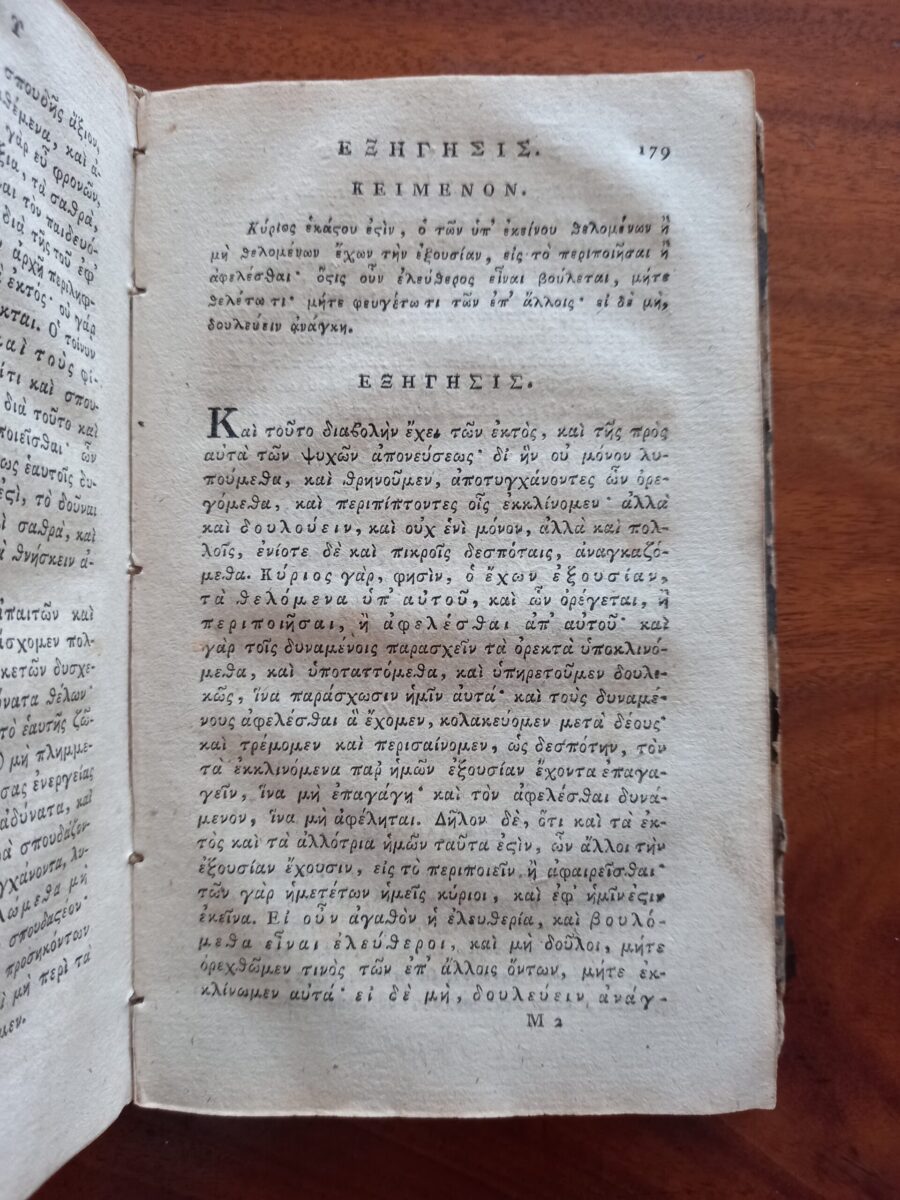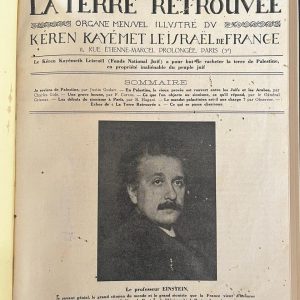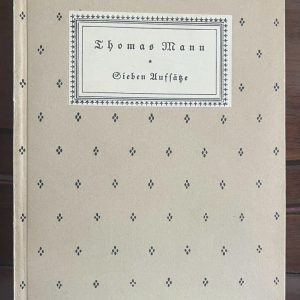1809, Vienna Printing, Neophytos Doukas, Arrianou ta Sozomena, First Edition, Tome IV, Epictetus
200.00€
Neophytos Doukas or Dukas (Greek: Νεόφυτος Δούκας; 1760 – 1845) was a Greek priest and scholar, author of many books and translations from ancient Greek works, and one of the most important personalities of the Modern Greek Enlightenment (Diafotismos) during the Ottoman occupation of Greece. His contributions to Greek education have been neglected because of the traditional ideas he advocated concerning the Greek language question (being an “archaist”, supported the use of classical Greek over Katharevousa [puristic Greek] and Dimotiki).
Out of stock
Description
Δούκας Νεόφυτος,
Αρριανού τα Σωζόμενα, – Arrianou ta Sozomena
ήτοι, περί Αναβάσεως Αλεξάνδρου βιβλία επτά, η ινδική,
οι περίπλοι του τε Ευξείνου Πόντου και της Ερυθράς,
ο Κυνηγετικός, τα Τακτικά, εν οις προσετέθησαν και το του Αιλιανού,
Έκταξις κατά Αλάνων, το Εγχειρίδιον του Επικτήτου,
Ομιλίαι ή διατριβαί Επικτήτου βιβλία τέσσαρα,
και άλλα τινά αποσωθέντα αποσπάσματα.
Επεξεργασθέντα και εκδοθέντα, υπό Νεοφύτου Δούκα εις τόμους επτά
Εδ΄ω:
Τόμος Τέταρτος (από 7)
ΕΠΙΚΤΗΤΟΥ ΑΠΟΣΠΑΣΜΑΤΑ, ΕΚ ΤΟΥ ΣΤΟΒΑΙΟΥ ΣΥΛΛΕΓΕΝΤΑ
ΣΙΜΠΛΙΚΙΟΥ ΕΞΗΓΗΣΙΣ ΕΙΣ ΤΟΥ ΕΠΙΚΤΗΤΟΥ ΕΓΧΕΙΡΙΔΙΟΝ
ΕΠΙΚΤΗΤΟΥ ΕΓΧΕΙΡΙΔΙΟΝ
Εν Βιέννη της Αουστρίας εκ της Τυπογραφίας Γεωργίου Βενδώτου, 1809
Neophytos Doukas
Extant Works of Arrian
Here:
Volume IV (out of 7 Volumes)
Containing:
Extracts from Epictetus of Stobaeus’ Anthology
Simplicius’ of Cilicia Commentary on Epictetus’ Enchiridion
The Enchiridion of Epictetus
Published in Vienna by Georgios Vendotos in 1809
Pages 354
8vo, 19cm x 12cm (approx. 7,5inch. x 4,75inch.)
First rare Edition
Epictetus (Greek: Επίκτητος; c. 50 – c. 135 AD) was a Greek Stoic philosopher. He was born into slavery at Hierapolis, Phrygia (present-day Pamukkale, in western Turkey) and lived in Rome until his banishment, when he went to Nicopolis in northwestern Greece, where he spent the rest of his life. His teachings were written down and published by his pupil Arrian in his Discourses and Enchiridion.
The Enchiridion or Handbook of Epictetus (Ancient Greek: Εγχειρίδιον Επικτητου,) is a short manual of Stoic ethical advice compiled by Arrian, a 2nd-century disciple of the Greek philosopher Epictetus. Although the content is mostly derived from the Discourses of Epictetus, it is not a summary of the Discourses but rather a compilation of practical precepts. Eschewing metaphysics, Arrian focuses his attention on Epictetus’s work applying philosophy to daily life. Thus, the book is a manual to show the way to achieve mental freedom and happiness in all circumstances.
Arrian of Nicomedia (Greek: Αρριανός Arrianos; Latin: Lucius Flavius Arrianus; c. 86/89 – c. after 146/160 AD) was a Greek historian, public servant, military commander, and philosopher of the Roman period. He was a pupil of Epictetus around 108 AD and the Encheiridion is a short compendium or handbook of all Epictetus’ philosophical principles.
Simplicius of Cilicia (Greek: Σιμπλίκιος ὁ Κιλικής; c. 480 – c. 560 AD) was a disciple of Ammonius Hermiae and Damascius, and was one of the last of the Neoplatonists. He was among the pagan philosophers persecuted by Justinian in the early 6th century, and was forced for a time to seek refuge in the Persian court, before being allowed back into the empire. The distinction between “what is up to us” (ta eph’ hēmín), and everything else was the basis of Epictetus’s ethical program. According to Simplicius, the goal of the Encheiridion is to make the soul so free that it will fear nothing, let nothing make it, and be overwhelmed by nothing beneath it. In this way it reaches the natural state that is intended for it within the framework of the world order.
Joannes Stobaeus (Greek: Ἰωάννης ὁ Στοβαῖος; fl. 5th-century AD), from Stobi in Macedonia, was the compiler of a valuable series of extracts from Greek authors. The work was originally divided into two volumes containing two books each. The two volumes became separated in the manuscript tradition, and the first volume became known as the Extracts and the second volume became known as the Anthology (Florilegium). Modern editions now refer to both volumes as the Anthology. The Anthology contains extracts from hundreds of writers, especially poets, historians, orators, philosophers and physicians. The subjects range from natural philosophy, dialectics, and ethics, to politics, economics, and maxims of practical wisdom. The work preserves fragments of many authors and works which otherwise might be unknown today.

